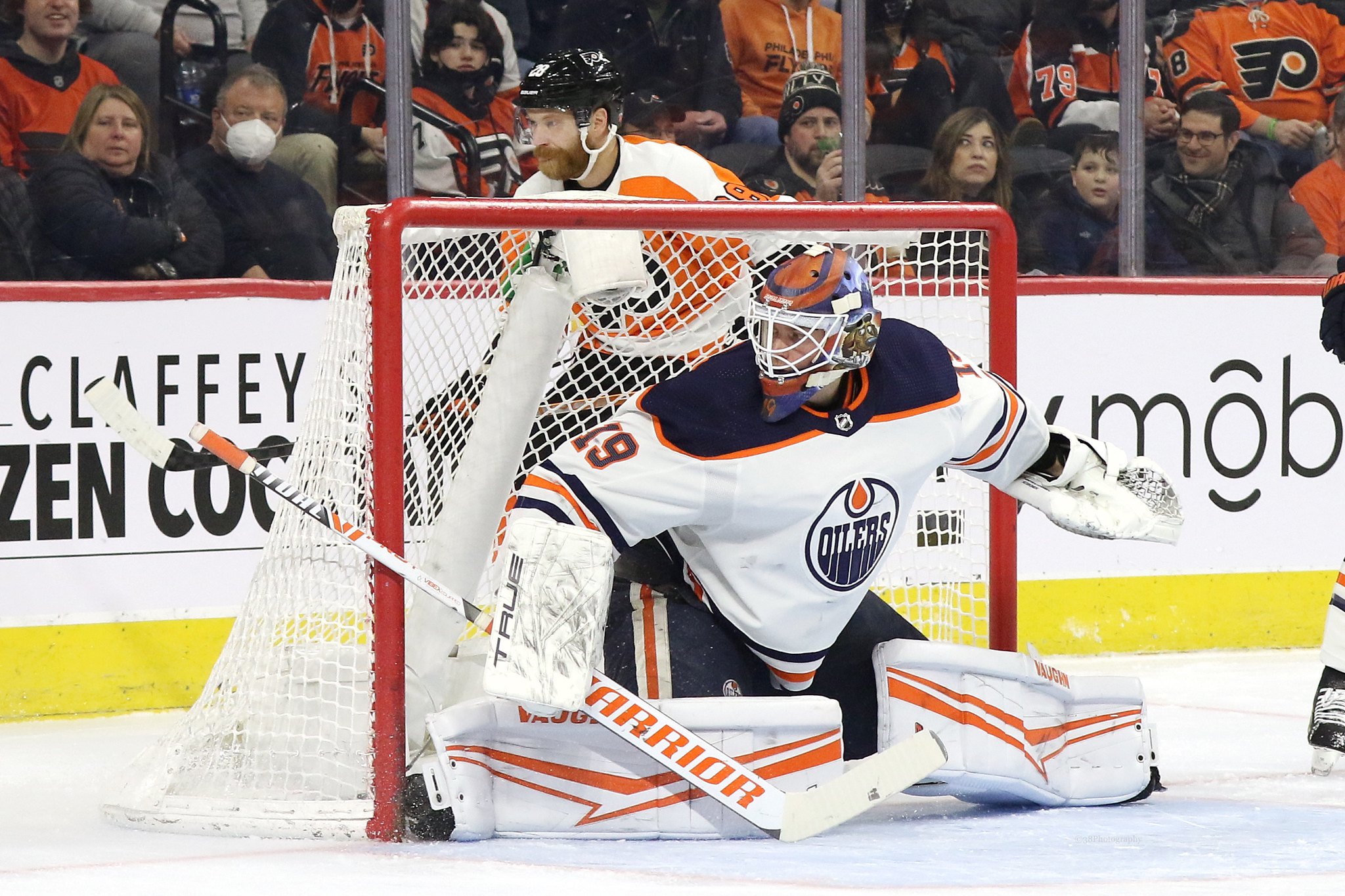NHL teams got good news on Tuesday as the league has officially announced the salary cap for the 2022-23 season will increase by $1 million. With a ceiling of $82.5 million, this is an excellent update for teams that are spending close to the limit each season and for those clubs that were left scrambling when the pandemic hit and the expected yearly continued growth of the cap stopped dead in its tracks.
While $1 million isn’t a huge amount of money and barely enough to sign a difference-maker in free agency, when combined with a couple of other moves, or when thinking long-term, there is a lot a GM — especially one that has proven he’s pretty good at working on a budget — can do. In the case of Ken Holland, what are the three best ways he might maximize what an increase of $1 million to his budget could do for next season?
Option 1: Fix the Goaltending
The big issue coming into next season is the goaltending. The Oilers have made their bed when it comes to this season and the hope is that either Mikko Koskinen or Mike Smith can get hot, with AHL star Stuart Skinner on speed dial in case of emergency. While there’s not much anyone can do about this season now, next season, Koskinen won’t be a part of the equation, at least not at a price tag of $4.5 million per season.

Even if Koskinen were to get hot down the stretch and go on a strong playoff run, he’s shown over the course of the last three seasons that he’s not worth $4.5 million per season. If the Oilers give him another shot, his salary would go down at least $1 million. Add that to the $1 million in a salary cap increase and the Oilers have another $2 million to spend with their goaltending trio in place.
Should the Oilers move on from Koskinen (which they likely will), the Oilers have $5.5 million or less to spend on a starter. If they can find a way to move Mike Smith, they have $7.7 million to spend between Skinner and someone else. That’s plenty of money to make a strong pitch for someone who can solve a lot of netminding problems on a medium-term deal.
Option 2: Offer the Money to Evander Kane
If the Oilers want to sign Evander Kane, they’ll need to come up with at least $2 million more per season than they are spending now on the player. He comes in at just over $2 million on the team’s salary cap and speculation is that it will take at least $4 million by four years to get him to consider an extension. If you count the $1 million in increased salary cap money, Holland really only needs to find an extra $1-$1.5 million somewhere. That shouldn’t be incredibly hard to do.
Related: Oilers Sign Free Agent College Goalie Ryan Fanti to Entry-Level Deal
There may still need to be a sacrifice somewhere on the roster, but that sacrifice doesn’t have to be a big one if Kane is reasonable in his ask to stick around.
Option 3: Allocate the Money to Jesse Puljujarvi’s Long-Term Deal
Edmonton may go bridge deal with Jesse Puljujarvi this summer. They may also be considering a long-term extension in an attempt to lock him into a better deal longer term and get the win if he explodes offensively. His underlying numbers suggest he has the potential to do so and if he figures out the consistency in his game, Edmonton getting Puljujarvi on a five-year deal or longer could wind up being a huge win if the price is right.

In reality, the $1 million alone isn’t enough to get this done. Instead, this is more about what the $1 million signifies. The cap is supposed to go up another $1 million in 2023-24 and according to Frank Seravalli of Daily Faceoff:
The NHL reiterated today that the projection is the $1 billion debt held by the players will be repaid to owners by the end of the 2024-25 season. If that projection holds, 2025-26 is the first season the salary cap could rise significantly.
If that number jumps as expected, the 2025-26 season is a big one for Edmonton. At that time, they could look back and realize they locked in Puljujarvi at a good number in the summer of 2022 and not have to think about him while they have to tackle the extensions for Leon Draisaitl and Connor McDavid.
Draisaitl’s contract expires in the summer of 2025. McDavid’s expires the summer after that. If Holland is still around, he’ll need every penny available to get those two inked to new deals. Both will only be 29 years old and if the Oilers don’t want to do seven or eight-year deals (because that would take each to 36-37 years old), they’ll need the cap space. If the Oilers bridge-deal Puljujarvi and he becomes a star, they’ll have to spend far more then than they will now. If that happens, there’s almost no way Edmonton holds onto all three players.
You may also like:
- Oilers’ Primary Target from Maple Leafs Feels Like a Misprint
- Crosby Sets Record, Celebrini and McDavid Wow In Team Canada Win Over France
- Oilers’ Olympic Snubs Could Turn Into Motivation for Rest of the Season
- 3 Young Players the Edmonton Oilers Gave Up on Too Soon
- NHL Rumors: Nylander Injury, McMann’s Value, McDavid and Celebrini?
